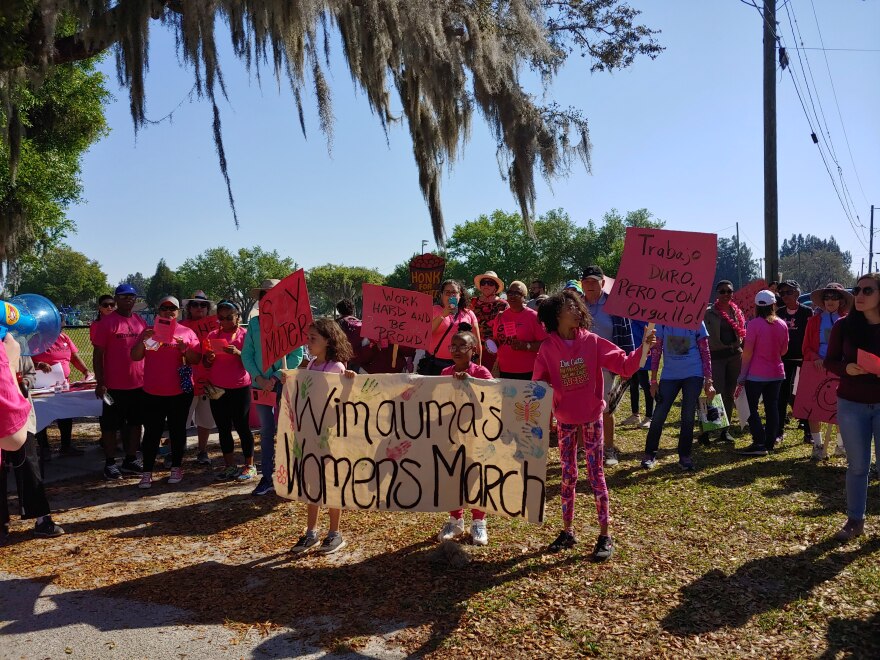Rosalva Serrano worked with her family as a girl picking oranges, tomatoes, cucumbers and other vegetables and fruits in Florida, Georgia and other parts of the south.
“I’ve learned so much from being a farm worker,” Serrano said, “It was the best time of my life because I learned so much and I shared so many wonderful memories with my family.”
The work was difficult at times, she said, and her parents encouraged her to go to school.
Serrano works at Beth-El Farmworker Ministry, Inc. in Wimauma now, helping workers get access to services and goods such as food and toiletries.
She told her story to a crowd of a few dozen in unincorporated south Hillsborough County on Saturday, where leaders of the non-profit Enterprising Latinas organized the first Women’s March there to celebrate the contributions of female farmworkers. March is Women’s History Month and Monday is the beginning of National Farmworkers Awareness Week.

Most of the residents of the small agricultural community of Wimauma are Spanish speaking people who identify as Latino.
Vanity Duran oversees welcoming and engagement at Enterprising Latinas. She said the march was a way to bring awareness to the contributions of women farmworkers in the community.
“These are the people who plant and nurture our fruits and vegetables that we eat on a daily basis, yet they have to do the most to get a good healthy plate of their own for their family,” Duran said.
The March
Chief Economic Empowerment Strategist at Enterprising Latinas Ileana Cintron led the group down streets in Wimauma chanting, “Women united will never be defeated,” in English and Spanish.
Some people held signs with slogans such as: “Soy Mujer” (I am a woman), “Trabajo Duro, Pero Con Orgullo” (I work hard, but with pride), and “Honk for Justice.”
Members the Coalition of Immokalee Workers joined the march holding a banner reading: “Las Mujeres de Immokalee luchando por respeto y dignidad” (The women of Immokalee fight for respect and dignity).
Lupe Gonzalo is an advocate with the organization. She spoke during the march about how the group strives to create better conditions for farmworkers in Florida.
“What that pressure means is that we are asking these large companies to sign on to an agreement that they pay a little bit more the products that they buy in order to improve wages and also that they sign on to a code of conduct that we workers, ourselves, created,” a translator said after Gonzalo’s statement.
The Coalition of Immokalee Workers reports wage increases and greater protections for women farmworkers against sexual assault through its Fair Food Program, which includes a 24-hour hotline service.
“And through this system, we’ve been able to resolve over 2,500 complaints,” Gonzalo said. “We’ve been able to find real solutions so that crew leaders and bosses [...] are now actually facing consequences. And, we as women finally have the right to work in an environment free of sexual assault.”




